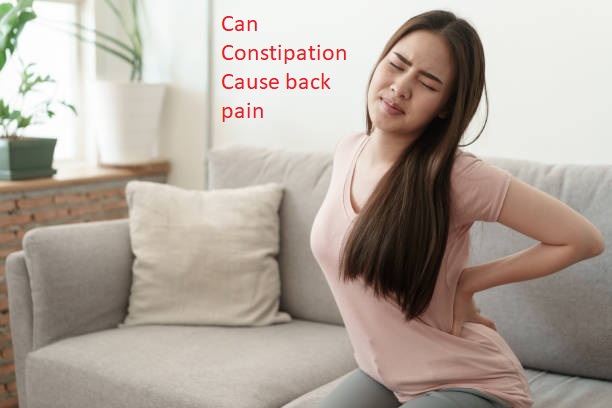How Can Constipation Cause Back Pain and How to Relieve It
Constipation is a common digestive issue that affects millions of people worldwide. While it is primarily associated with discomfort in the abdominal region, many individuals wonder if can constipation cause back pain. This article aims to explore the intriguing connection between constipation and back pain, shedding light on various aspects of this relationship.
We will delve into whether constipation can lead to severe back pain, the underlying reasons behind this phenomenon, and even consider the reverse scenario – whether back pain can contribute to constipation.
Moreover, we will examine the specific types of back pain associated with constipation, such as lower and upper back pain, and instances where both back and leg pain occur simultaneously due to constipation.
Understanding the symptoms of constipation, its potential causes, and effective treatment strategies is crucial for anyone experiencing this uncomfortable association between digestive health and back pain.
Additionally, we will provide answers to frequently asked questions to offer a comprehensive understanding of this topic. So, let’s unravel the mysteries of how constipation can indeed cause back pain and how you can manage and prevent it.
Can Constipation Cause Severe Back Pain?
Yes, constipation can indeed cause severe back pain, and this connection may surprise many. While constipation primarily involves difficulty in passing stools or infrequent bowel movements, its effects can extend beyond the abdominal region.
When constipation becomes more severe or chronic, the accumulated stool in the colon can exert significant pressure on surrounding structures, leading to discomfort and pain, including in the back.
Why Can Constipation Cause Back Pain?
The link between constipation and back pain may seem unexpected, but it arises from the intricate interplay between the digestive and musculoskeletal systems. Understanding why constipation can cause back pain requires exploring the physiological mechanisms involved:
Pressure on the Lower Back:
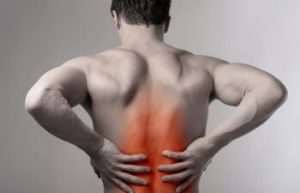
Constipation primarily affects the large intestine or colon, which is situated in the lower abdominal area. When stool accumulates and hardens in the colon, it can create a substantial amount of pressure. This pressure doesn’t just stay confined to the abdomen; it can also radiate to the lower back. As a result, the lower back muscles and structures may become strained, leading to discomfort and pain.
Nerve Compression lower back:
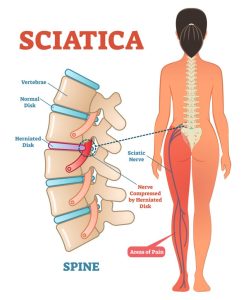
The nerves in the lower back region are closely situated to the colon. When constipation becomes chronic or severe, the distended colon can press against these nerves. Nerve compression can cause referred pain, which means that the pain is felt in a different location than its source. In the case of constipation-related back pain, this often manifests as aching or shooting pain in the lower back, hips, and even down the legs.
Muscle Tension:
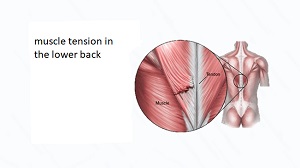
Chronic constipation can lead to increased muscle tension in the lower back. As the body tries to compensate for the discomfort and pressure in the abdomen, the muscles in the lower back may tense up. This muscle tension can contribute to back pain and make it more challenging to find relief.
Altered Posture:
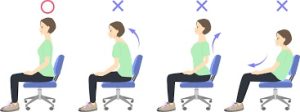
Prolonged discomfort from constipation can affect your posture. You may unknowingly change the way you sit or stand to alleviate the discomfort, and these altered postures can put additional strain on the back muscles and spine.
Inflammation:
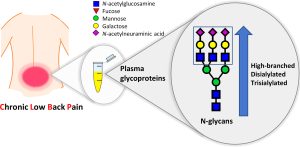
In some cases, chronic constipation may cause low-grade inflammation in the digestive tract. Inflammatory substances released in response to the blockage can irritate nearby structures, including the lower back, leading to pain.
Psychological Factors: The discomfort and frustration associated with constipation can also contribute to back pain. Stress and tension can exacerbate muscle tension and pain perception, making the overall experience more uncomfortable.
It’s important to recognize that not everyone with constipation will experience back pain, and the severity of back pain can vary from person to person. However, when constipation becomes chronic or is left untreated, the risk of developing back pain increases. Addressing constipation through dietary changes, increased hydration, exercise, and, if necessary, medical interventions can help alleviate the pressure on the lower back and reduce the likelihood of back pain associated with constipation.
Is It Possible for Back Pain to Cause Constipation?
While it’s more common for constipation to cause back pain, there are scenarios where back pain can contribute to or exacerbate constipation. The relationship between back pain and constipation is not direct, but certain factors associated with back pain can indirectly influence bowel function. Here’s how back pain can potentially lead to or worsen constipation:
Reduced Mobility:
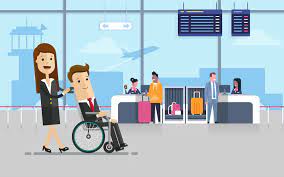
Back pain, especially when it affects the lower back or hips, can limit an individual’s mobility. Pain can make it difficult to move comfortably, bend, or engage in physical activities. Reduced mobility can slow down the digestive system and impede the natural movement of stool through the colon, potentially leading to constipation.
Medications:

Many individuals with chronic back pain or spinal conditions may take pain medications, including opioids. Opioids are known to slow down bowel movements and increase the risk of constipation. Therefore, the use of these medications to manage back pain can indirectly contribute to constipation.
Sedentary Lifestyle:

Back pain can discourage physical activity, leading to a more sedentary lifestyle. Lack of exercise and physical inactivity can contribute to a sluggish digestive system and increase the risk of constipation.
Stress and Anxiety:
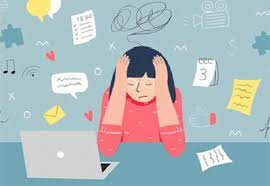
Chronic back pain can be emotionally distressing, leading to stress and anxiety. Psychological factors like stress and anxiety can affect bowel function and exacerbate constipation in some individuals.
Altered Diet:

People experiencing back pain may make dietary changes or consume fewer fluids to avoid exacerbating their pain. Such dietary modifications, if not well-balanced, can lead to constipation.
It’s important to note that back pain alone is not a common or direct cause of constipation. However, the combination of reduced mobility, medication use, lifestyle changes, and psychological factors associated with chronic back pain can contribute to or worsen constipation in certain cases.
If you have chronic back pain and are concerned about its impact on your bowel function, it’s advisable to consult with a healthcare provider. They can help you manage your back pain effectively, provide guidance on medications, and suggest strategies to prevent or address constipation that may arise as a result of your condition or its treatment.
Does Constipation Cause Lower Back Pain?
Yes, constipation can indeed cause lower back pain, and this connection is relatively common. When constipation occurs, it can lead to discomfort and pain that is often felt in the lower back region. Here’s how constipation can contribute to lower back pain:
1.Pressure on the Lower Back: The primary reason for lower back pain associated with constipation is the accumulation of stool in the colon. When stool becomes impacted and hard to pass, it can create a significant amount of pressure in the lower abdominal area. This pressure can extend to the lower back, leading to a dull, aching sensation or discomfort.
2.Nerve Compression: The nerves in the lower back are located in close proximity to the colon. When constipation becomes severe or chronic, the distended colon can press against these nerves. This pressure on the nerves can result in referred pain, where the pain is felt in a different location than its source. In this case, it may manifest as pain in the lower back.
3.Muscle Tension: Chronic constipation can lead to increased muscle tension in the lower back. As the body tries to cope with the discomfort and pressure in the abdomen, the muscles in the lower back may tense up. This muscle tension can contribute to lower back pain.
Can Constipation Cause Upper Back Pain?
Constipation typically does not directly cause upper back pain. Upper back pain is more commonly associated with issues related to the spine, muscles, or organs in the upper part of the body.
However, severe constipation can sometimes lead to general discomfort or referred pain, which might be felt in the upper back or shoulder area due to the overall discomfort and tension caused by the condition. If you are experiencing upper back pain in conjunction with constipation, it’s advisable to consult a healthcare professional to rule out any other underlying issues and receive appropriate treatment.
Can Constipation Cause Back Pain and Leg Pain at the Same Time?
Yes, constipation can potentially cause both back pain and leg pain at the same time. When severe constipation puts pressure on the nerves in the lower back, it can lead to referred pain that may radiate down into the legs. This can result in a combination of back pain and leg pain, often referred to as sciatica.
However, it’s important to note that not all cases of back pain and leg pain are related to constipation, and there can be various other causes for such symptoms. If you are experiencing back pain and leg pain simultaneously, especially if it’s severe or persistent, it’s essential to consult a healthcare provider for a proper evaluation and diagnosis.
What Are Symptoms of Constipation?
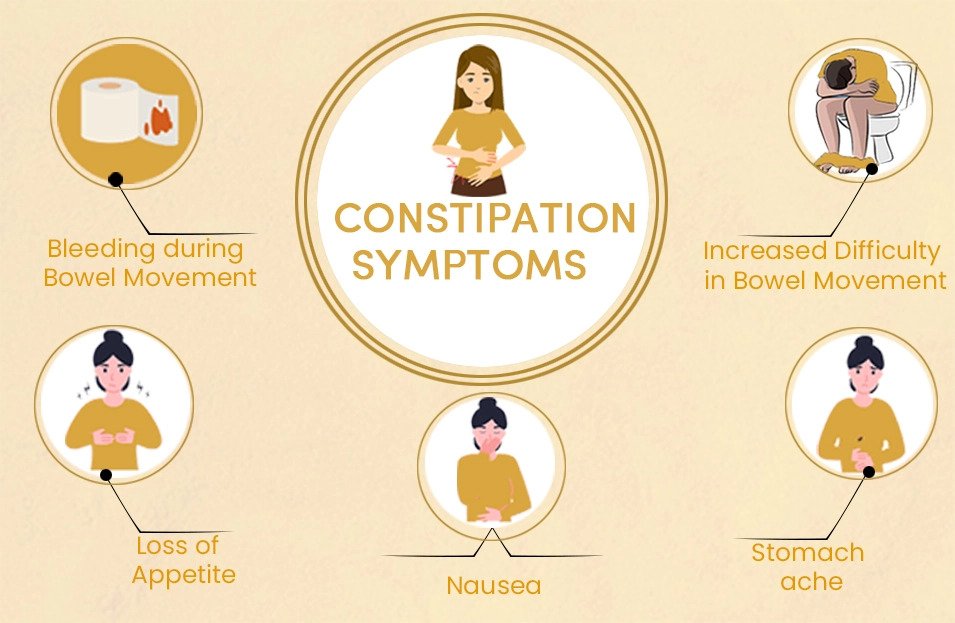
Constipation is a common digestive issue characterized by infrequent or difficult bowel movements. The symptoms of constipation can vary in severity from person to person, and some individuals may experience additional discomfort or complications. Common symptoms of constipation include:
Infrequent Bowel Movements: One of the primary indicators of constipation is a significant reduction in the frequency of bowel movements. Normal bowel habits vary among individuals, but having fewer than three bowel movements in a week is often considered a sign of constipation.
Difficulty Passing Stool: Constipation typically involves straining or difficulty when trying to have a bowel movement. The stool may feel hard, dry, and challenging to pass.
Incomplete Emptying: You may feel as though you haven’t fully emptied your bowels after a bowel movement, even though you’ve tried to pass stool.
Abdominal Discomfort: Constipation can lead to abdominal discomfort or pain. This pain is often described as cramping or a dull, aching sensation and is usually located in the lower abdomen.
Bloating: Many individuals with constipation experience bloating, where the abdomen feels swollen or distended. This is often due to the accumulation of gas and stool in the colon.
Rectal Discomfort: Constipation can cause discomfort or pain in the rectal area, especially during bowel movements. This may be accompanied by a feeling of rectal fullness.
Hard or Small Stools: Stools in constipation are often dry, hard, and lumpy, making them challenging to pass. They may also appear smaller than usual.
Straining: A common symptom of constipation is straining during bowel movements. This can lead to increased pressure in the abdominal and pelvic regions.
Blood in Stool: In some cases, constipation can cause small amounts of bright red blood on the toilet paper or in the stool. This may occur due to small tears (anal fissures) caused by straining.
Changes in Bowel Habits: For some individuals, constipation alternates with periods of diarrhea, a condition known as irritable bowel syndrome with constipation (IBS-C).
General Discomfort: Constipation can lead to a general feeling of discomfort and unease. Some individuals may also experience headaches or fatigue.
How Do You Treat Constipation and Back Pain?
Constipation and back pain are frequently treated with a combination of lifestyle modifications, dietary changes, and, in rare circumstances, medicinal procedures. Here are some methods for dealing with both constipation and back pain:
Treating Constipation:
Dietary Modifications:
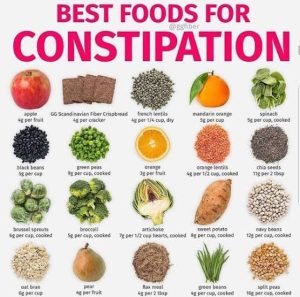
Increase your fiber intake by eating more high-fiber foods including whole grains, fruits, vegetables, and legumes. Fiber softens stool and encourages regular bowel motions.
Drink lots of water to keep your stool soft and to avoid dehydration, which can aggravate constipation.
Exercise on a regular basis:
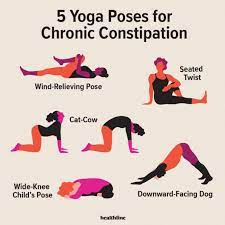
Regular physical exercise can help to induce bowel motions and improve digestive health.
Laxatives:
Constipation can be relieved temporarily using over-the-counter laxatives or stool softeners. Use them under the supervision of a healthcare practitioner, however, to avoid long-term dependency.
Prescription Medications:
Your doctor may prescribe drugs to aid with persistent constipation, such as prescription-strength laxatives or medications that promote intestinal motility, in some circumstances.
Biofeedback Therapy:
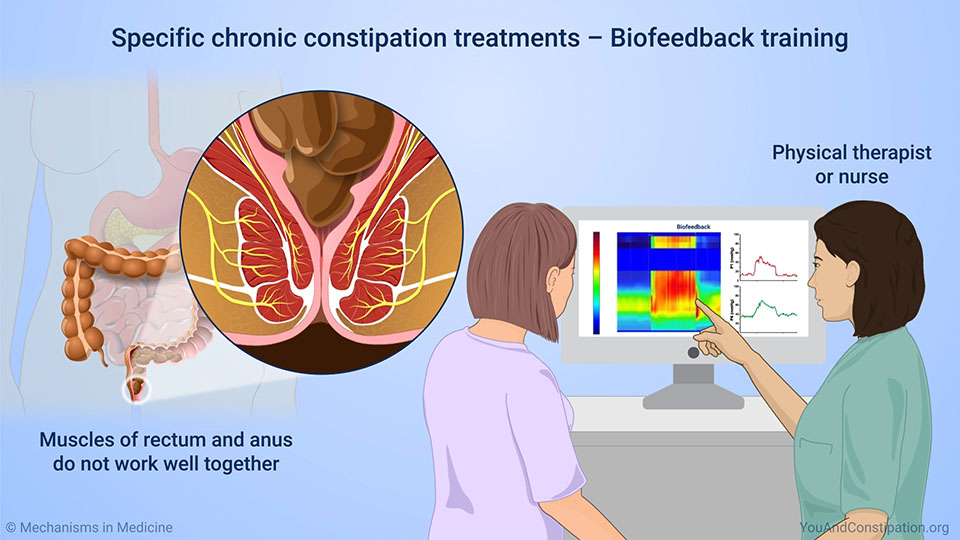
Biofeedback treatment can teach people how to control their pelvic muscles, which can assist with persistent constipation.
Lifestyle Changes:
Establish regular bowel habits by striving to urinate at the same time every day.
Don’t put off having a bowel movement; instead, pay attention to your body’s instincts.
Make a relaxing and stress-free setting for bowel movements.
Treating Constipation-Related Back Pain:
Pain relievers:
Mild back discomfort may be relieved by over-the-counter pain medications such as ibuprofen or acetaminophen. Follow the dose recommendations exactly.
Heat and Cold Therapy:
Muscle tightness and soreness can be relieved by applying heat or cold packs to the afflicted region of your back.
Physical Therapy (PT):
A physical therapist can give you back pain relief exercises and stretches to help you improve your posture.
Chiropractic Treatment:
Chiropractic adjustments help some people get rid of back discomfort.
Massage Treatment:
Massage treatment may relieve pain and relax tight muscles.
Changes in Lifestyle:
Maintain proper posture when sitting, standing, and lifting to prevent back discomfort.
To strengthen the back muscles, avoid lengthy periods of inactivity and participate in regular exercise.
Stress can aggravate both constipation and back discomfort, so learn stress management skills.
Medication Management:
Consult a healthcare practitioner if you have severe or persistent back pain, as they may prescribe pain relievers or muscle relaxants.
Surgery (in rare cases):
Surgery is usually chosen only after conservative therapy have failed to relieve back pain caused by a structural problem.
Keep in mind that the best therapy for your constipation and back pain may vary depending on the underlying reasons and severity of your symptoms. It’s critical to see a doctor for an accurate diagnosis and specific treatment plan, especially if your symptoms are severe, persistent, or you have additional concerns about your health. Furthermore, leading a healthy lifestyle that includes a balanced diet, frequent exercise, and adequate water will help avoid both constipation and back discomfort in the long run.
FAQ:
Can constipation cause back pain?
Yes, constipation can lead to back pain, primarily in the lower back.
How does constipation lead to back pain?
Constipation can cause back pain by putting pressure on the lower back and affecting nearby nerves.
What type of back pain is associated with constipation?
The most common type of back pain associated with constipation is lower back pain.
Is there a specific reason for the connection between constipation and back pain?
Yes, the pressure on the lower back due to impacted stool and nerve compression are key factors.
Can back pain from constipation be severe?
Yes, in some cases, constipation-related back pain can be severe and debilitating.
How can I relieve back pain caused by constipation?
Relief methods may include dietary changes, increased hydration, exercise, and medical treatments.
When should I seek medical attention for back pain and constipation?
Seek medical attention if back pain and constipation are severe, persistent, or accompanied by other concerning symptoms.
Can lifestyle changes prevent constipation-related back pain?
Yes, adopting a healthy lifestyle with a balanced diet and regular exercise can help prevent constipation and related back pain.
Are there other conditions that mimic this type of back pain?
Yes, some gastrointestinal and spinal conditions can mimic the symptoms of constipation-related back pain. Consult a healthcare professional for an accurate diagnosis.

